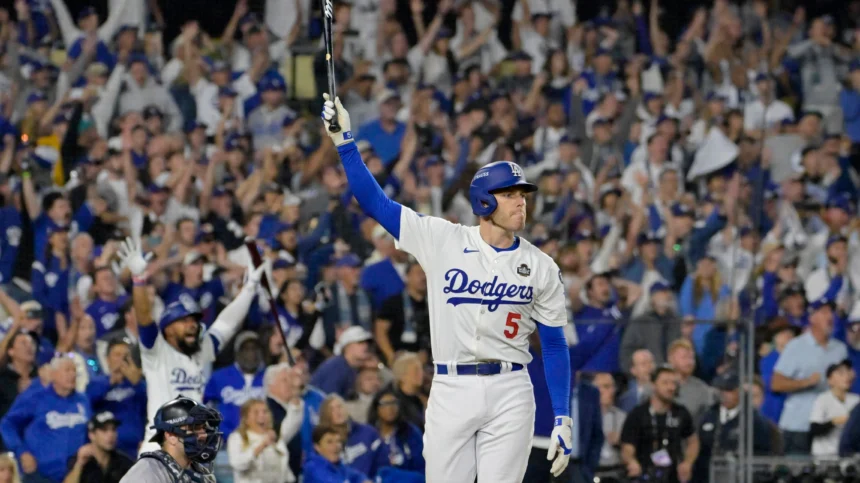Introduction to World Series
The World Series the championship series of Major League Baseball (MLB), typically takes place in late October.
This annual event pits the champions of the American League against the champions of the National League in a best-of-seven playoff format.
The exact dates can vary from year to year, depending on several factors, including the regular season schedule, playoff progressions, and any potential delays due to weather or other unforeseen circumstances.
Historical Context
The World Series has a rich history that dates back to 1903 when it was first held. This inaugural matchup featured the Boston Americans (now the Boston Red Sox) against the Pittsburgh Pirates. The series has evolved significantly since its inception, both in terms of format and cultural significance. Originally featuring a best-of-nine format, it switched to a best-of-seven format in 1922, a standard that continues to this day.
Timetable of Events
- Regular Season (April – September): MLB’s regular season generally runs from early April to late September, with teams playing 162 games. The regular season typically concludes by the last Sunday in September.
- Postseason (October): MLB’s postseason usually begins in the first week of October. It includes the Wild Card games, Division Series, and Championship Series. The specific setup may change based on standings; for example, additional Wild Card teams have been introduced in recent years.
- World Series (Late October to Early November): The World Series is traditionally scheduled to start in the last week of October. The MLB aims to complete the World Series before the end of the first week of November to avoid conflicts with other sports (like the NFL) and potential weather challenges. However, if the Championship Series extends to a Game 7, the World Series may start as late as November 1 or 2.
Dates for Recent World Series
To provide a clearer picture of how the scheduling can vary, here are the start dates of recent World Series:
- 2018: October 23
- 2019: October 22
- 2020: October 20
- 2021: October 26
- 2022: October 28
- 2023: Scheduled for October 27
Despite being traditionally held in late October, the exact timing can extend into early November, particularly if there are weather delays or if the postseason lasts longer than usual.
Impact of Weather
October weather can be unpredictable, leading to potential postponements or rescheduling of games. MLB considers this when choosing the timing of the postseason. For instance, in years with teams from colder regions, such as the New York Yankees or Boston Red Sox, the league may need to be particularly cautious as games might be impacted by inclement weather conditions. This is one reason why starting the World Series in late October is both strategic and risky.
Cultural Significance
The World Series has a major cultural impact; it is a time when baseball fans across the United States and around the world come together to celebrate the pinnacle of the sport. Television ratings for the World Series are among the highest for any sporting event in the United States, and the series garners significant media attention. The event also serves as a showcase for some of the best talents in baseball, with players aiming for not only team glory but also personal accolades.
Conclusion
In summary, the World Series takes place each year in late October, with dates varying slightly based on the preceding playoff schedule, the regular season’s conclusion, and potential delays. It’s a pivotal event in the baseball calendar, not just for the sport but also for American culture and entertainment, and its scheduling reflects historic trends and logistical considerations unique to the game. Fans look forward to this culmination of the baseball season, making it one of the most anticipated sporting events annually.
Certainly! Let’s delve deeper into the history, significance, and various elements that encapsulate the World Series and its scheduling, while also exploring the nuances of the event itself.
Detailed History of the World Series
The World Series began as a means to determine the best baseball team in the United States, drawing from the competitive climate of the early 20th century. Up until 1903, baseball was still a relatively young sport in America, and there was no formal championship tournament between the leagues. The National League (NL) dominated the early years, featuring teams like the Chicago Cubs and the New York Giants. The formation of the American League (AL) in 1901 added a new layer of competition, culminating in the creation of the World Series two years later.
Early Years and Format Changes: The first World Series in 1903 was a landmark in sports history, with the Boston Americans defeating the Pittsburgh Pirates in a best-of-nine format. Over the years, the series evolved, and by 1922, the best-of-seven format was adopted, which is still in place today. This shift improved the suspense and excitement of the series, as it allowed for quicker outcomes while still providing ample opportunities for teams to showcase their skills.
Expansion of Teams and Modern Developments
From its original eight teams, Major League Baseball has expanded significantly, currently comprising 30 teams split between the National and American Leagues. This expansion has had a direct impact on the World Series, as it introduced a wider array of potential matchups that can capture the public’s interest.
Interleague Play: The introduction of interleague play in 1997 further enhanced rivalries and fan engagement, as teams from different leagues now had a chance to compete regularly. This practice was pivotal in the lead-up to the World Series, allowing fans to witness matchups between teams they might not typically see during the regular season.
Playoff Structure Leading to the World Series
The postseason leading up to the World Series comprises several stages:
- Wild Card Games: Introduced in 2012, this set of single-elimination games allows two additional teams—one from each league—that did not win their respective divisions to compete for a spot in the Division Series.
- Division Series (ALDS/NLDS): The four division winners (two from each league) compete against the two Wild Card teams in a best-of-five series.
- League Championship Series (ALCS/NLCS): The winners of the Division Series face off in a best-of-seven series to determine the champions of the American League and National League.
- World Series: The champions from both leagues meeting in a best-of-seven series. The team with the better regular season record typically has home-field advantage, meaning they host the first two games and the last two games if the series goes that far.
The Grand Stage and Cultural Impact
The World Series is not just a sports event; it is woven into the cultural fabric of America. It captures the imagination of fans, families, and communities, often becoming a focal point for gatherings and festivities.
America’s Pastime: Baseball is often referred to as “America’s pastime,” and the World Series epitomizes this sentiment. The event bridges generations, with fans reminiscing about their own experiences watching games with family members, making it a shared cultural heritage that transcends age.
Economic Impact: The financial implications of the World Series are significant. Cities that host World Series games see substantial increases in tourism, as fans flock to stadiums, partake in associated events, and spend money in local businesses. The series can promote local and national brands, driving economic benefits beyond just the immediate championship.
Media and Broadcasting: The World Series garners extensive media coverage and advertising revenue. For example, in recent years, games have been broadcast in high-definition, with pre- and post-game shows adding to the viewing experience. Major networks invest heavily in production quality to deliver a visually engaging spectacle, which enhances the popularity and reach of the event.
Players and Records
The World Series has produced numerous legendary performances that have etched names into baseball lore. Players like Babe Ruth, Jackie Robinson, and more recently, players like Madison Bumgarner and David Ortiz, have become symbols of excellence during the series. The performance in the World Series can significantly elevate a player’s legacy and career, often leading to Hall of Fame considerations.
Records and Milestones: The World Series has seen record-breaking moments, such as:
- Most Home Runs in a Game: The record for the most home runs hit by a team in a single World Series game is held by the 2017 Houston Astros and the 2019 Washington Nationals, with eight home runs each in single playoff games.
- Curt Schilling’s 2004 Performance: Schilling famously pitched through injury to help lead the Boston Red Sox to their first championship in 86 years, emphasizing the dramatic and often inspirational narratives that the World Series can provide.
The Future of the World Series
As baseball continues to evolve, so does its championship series. Various factors are under consideration that could influence the future of the World Series, including:
- Game Length and Pace of Play: MLB has been introducing measures to speed up games, discussing potential changes to the World Series format to maintain viewer engagement while preserving the integrity of the sport.
- International Influence: With the increasing popularity of baseball internationally, particularly in countries like Japan and South Korea, the potential for global engagement and the inclusion of international players in the World Series may change the landscape of how audiences connect with the event.
- Technology and Fan Engagement: Innovations in technology could enhance how fans experience the World Series. Augmented reality and immersive experiences might become more commonplace, enabling fans to engage with the games in ways previously unimaginable.
Conclusion
In summary, the World Series is more than just a championship; it is a culmination of a season’s worth of effort, strategy, and passion. Generally scheduled in late October, its timing can shift based on various logistical factors. Its historical evolution, cultural relevance, economic impact, and dramatic gameplay continue to capture the hearts of millions. Looking ahead, the World Series will adapt and evolve, reflecting both changes in society and the timeless love of the game. Whether you are a die-hard fan or a casual observer, the World Series represents a pivotal moment in the world of sports that resonates across generations.




